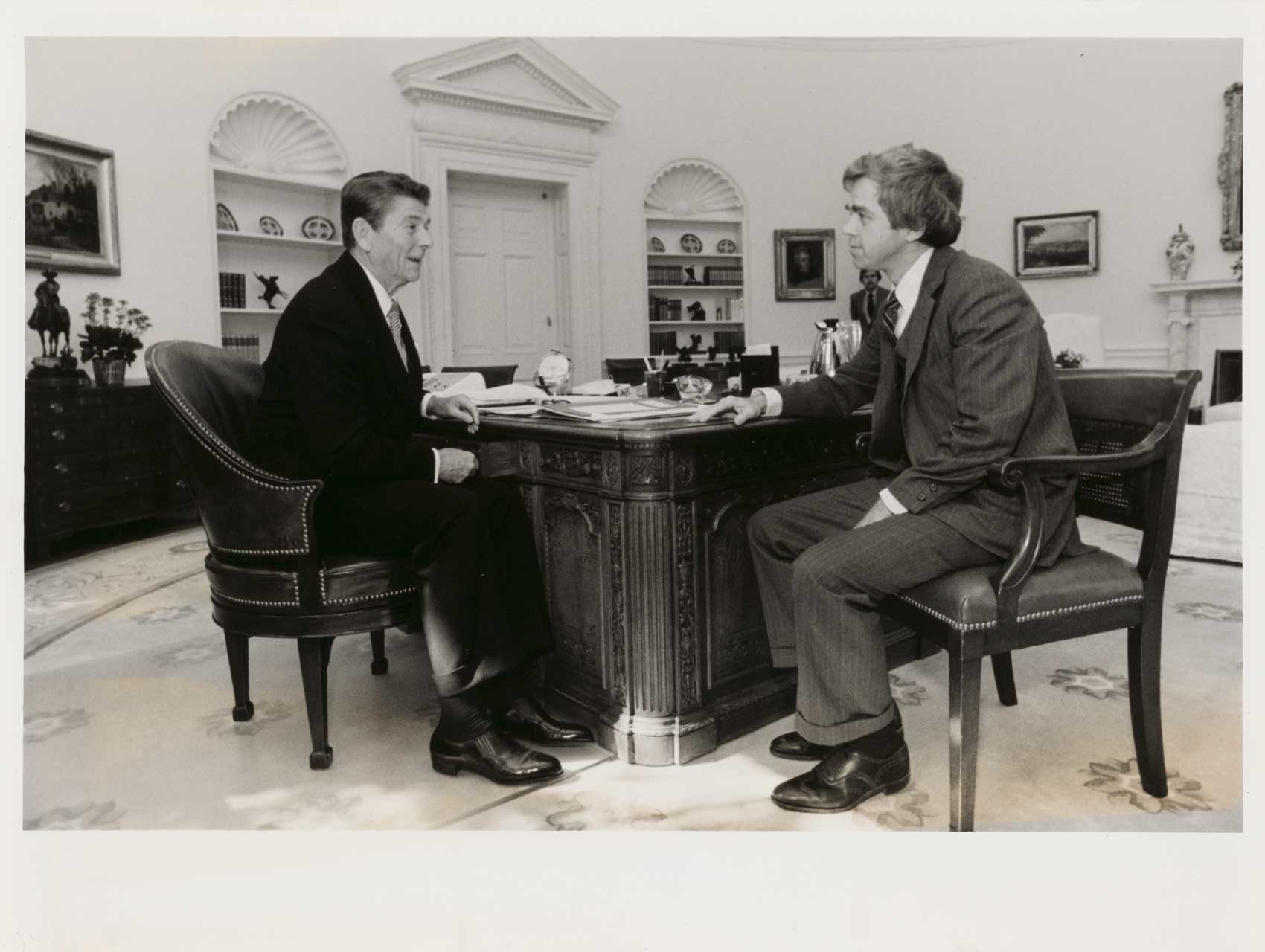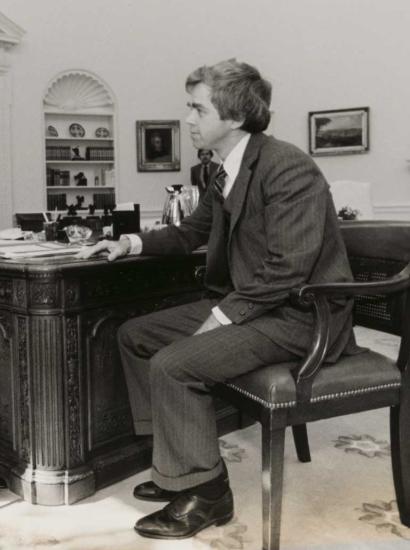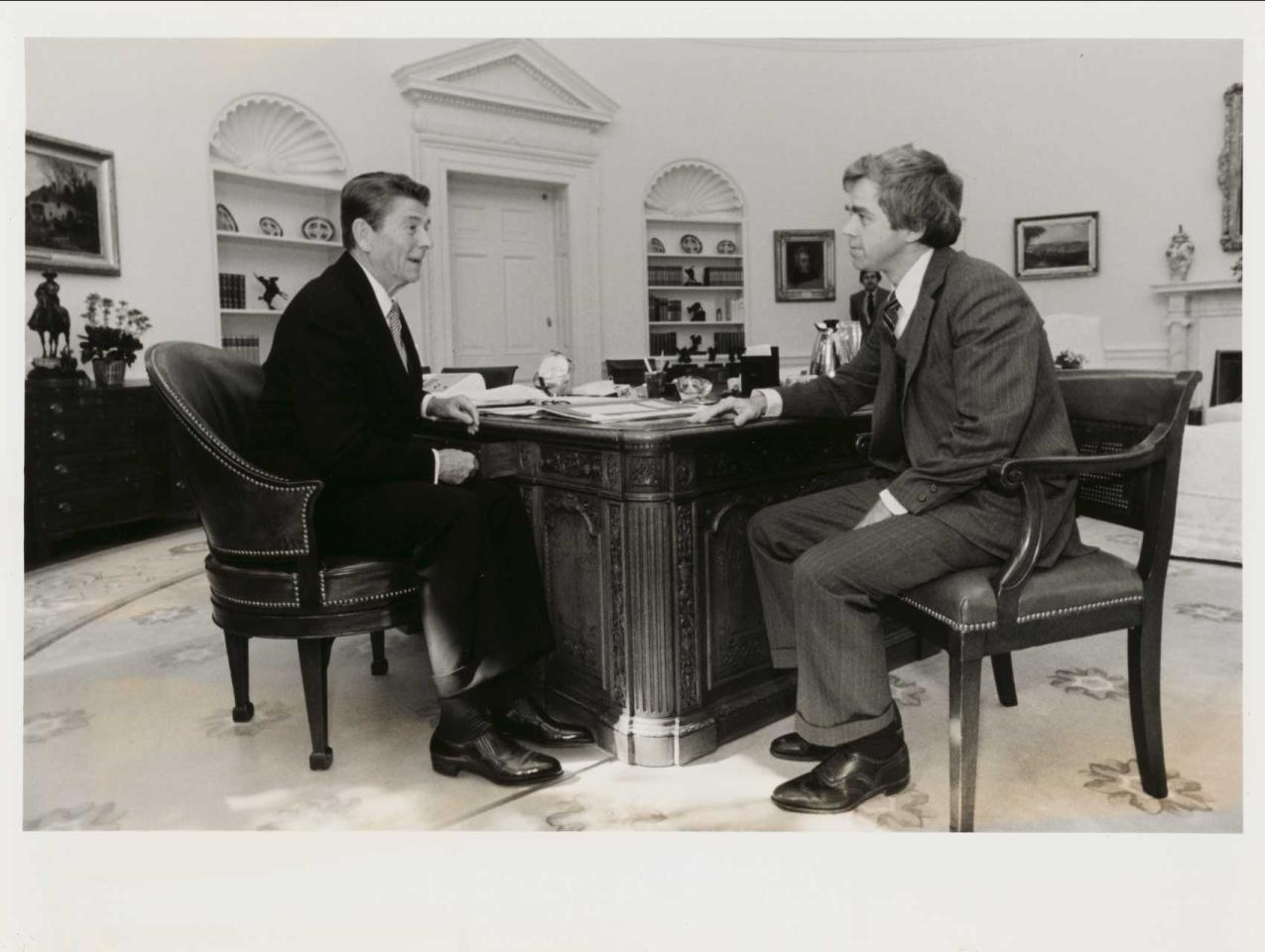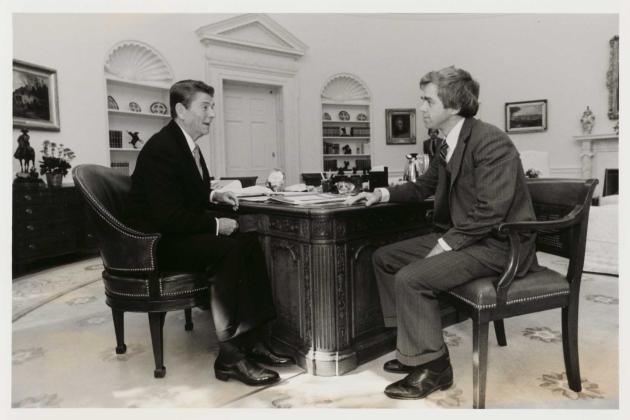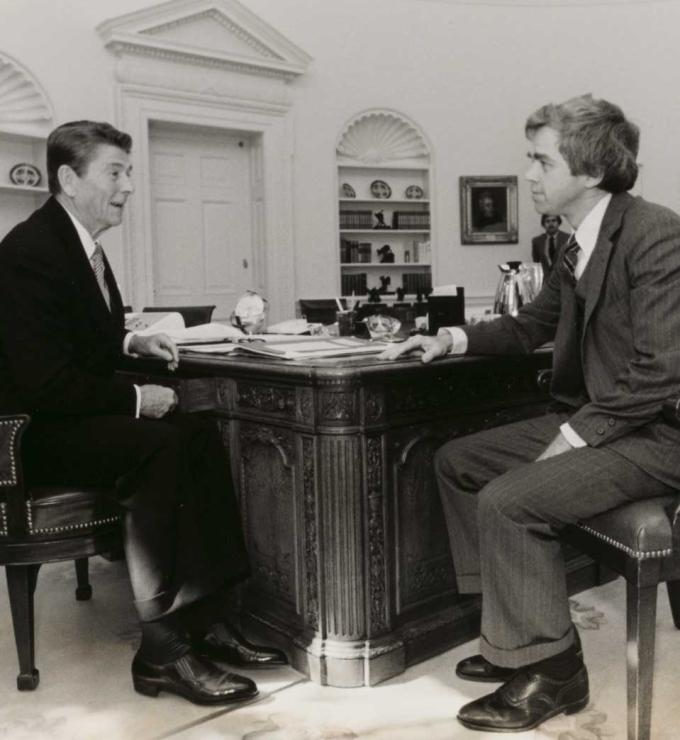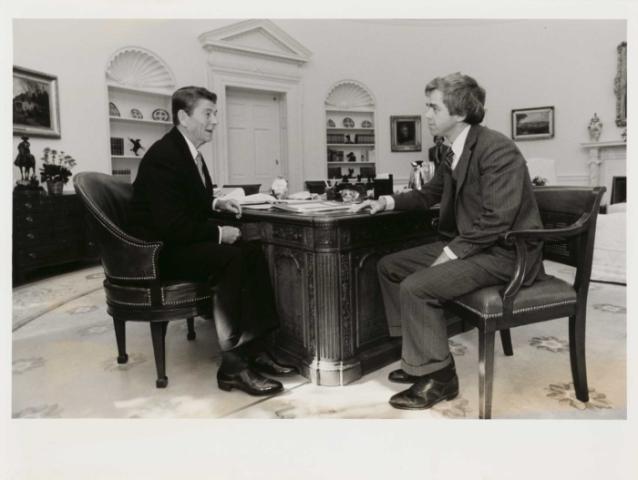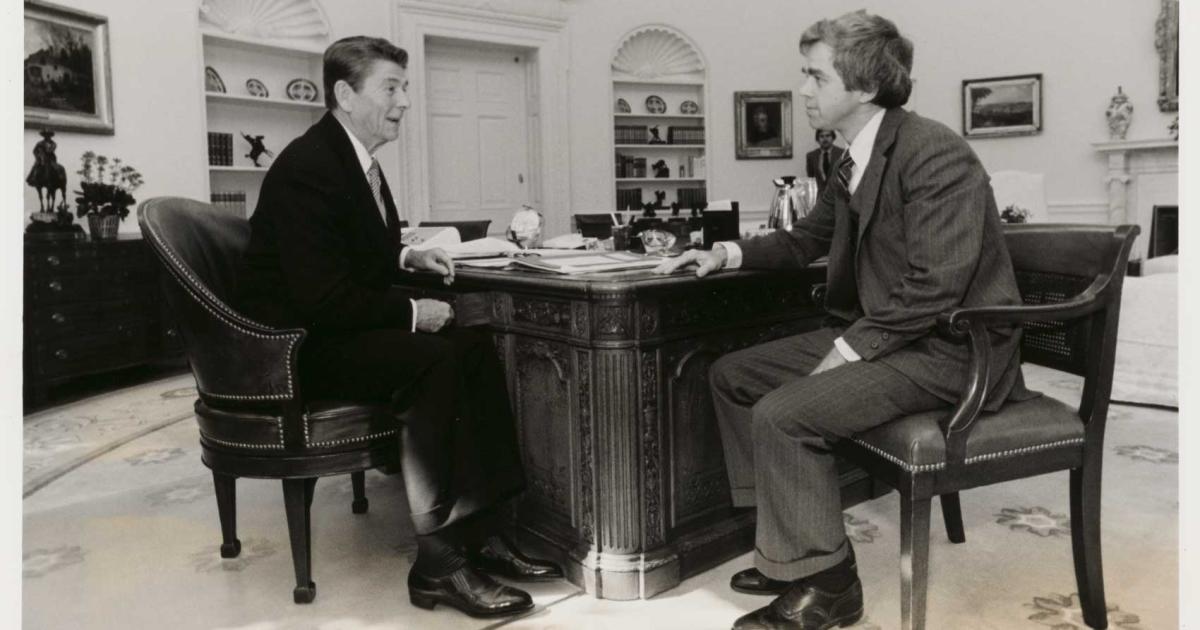Hoover Institution (Stanford, CA) – The Hoover Institution Library & Archives has opened, for the first time, the papers of the late senior fellow Martin Anderson, a leading policy advisor to Presidents Richard Nixon and Ronald Reagan whose illustrious career also unfolded in the top tiers of academia.
Anderson joined the Hoover Institution as a senior fellow in 1971, where he remained an influential scholar for over four decades. He took leave from Hoover from 1975 to 1976 to work on Reagan’s presidential campaign, and then again from 1980 to 1982 to work on Reagan’s successful bid for the White House and in his subsequent administration.
In the Nixon administration, Anderson was credited for helping end the draft and bringing into existence the all-volunteer armed forces. Under Reagan, Anderson helped formulate the administration’s original economic program that became popularly known as “Reaganomics.”
Throughout his career at Hoover, Anderson was a prolific researcher and writer, publishing several far-reaching books and essays that covered a broad spectrum of policy issues. Among these is his seminal work, Welfare: The Political Economy of Welfare Reform in the United States (1978). He also wrote a chapter on welfare reform in The United States in the 1980s (eds. Peter Duignan and Alvin Rabushka, 1980), which Soviet general secretary Mikhail Gorbachev called “the real blueprint of the Reagan administration.” In 1982, he published The Military Draft: Selected Readings on Conscription and edited The Registration and the Draft: Proceedings on the Hoover-Rochester Conference on the All-Volunteer Force. In 1984, Anderson published An Economic Bill of Rights; Reagan promoted an initiative of the same name in 1987. In 1988, Anderson released Revolution, in which he described his experiences working for Reagan. In his later years, Anderson began publishing extensive writings of Reagan held in the US National Archives.
“Martin Anderson’s intellectual contributions to public policy helped thrust America into an era of peace and prosperity in the second half of the twentieth century,” said Eric Wakin, the deputy director of the Hoover Institution and director of the Library & Archives. “This vast collection helps us better understand key inflection points in the nation’s history and in particular how American leadership solved crucial challenges related to the economy, urban life, the military, and so much more.”
The Martin Anderson papers are a rich historical resource providing insight on Anderson’s career, public service, and academic research, as well as the consequential times in which he worked. They offer an in-depth perspective of Nixon’s and Reagan’s pursuits of the White House and their respective presidential transitions and administrations. A unique historical aspect of the Anderson papers is rare correspondence that captures the internal interactions between Nixon’s and Reagan’s many advisors.
Click here to read the full description of the Martin Anderson collection and information on accessing its materials at the Library & Archives.
For coverage opportunities, contact Jeffrey Marschner, 202-760-3187, jmarsch@stanford.edu or Maryann Villavert, Hoover Institution Library & Archives Communications Manager.




